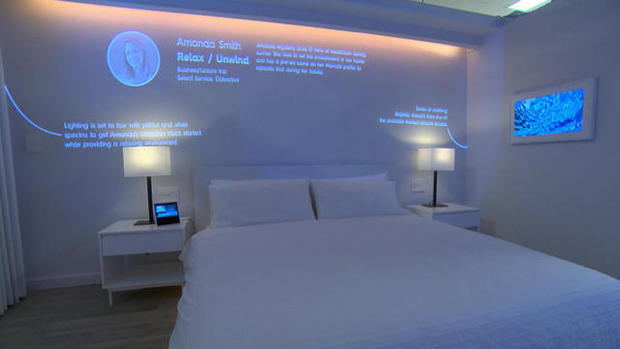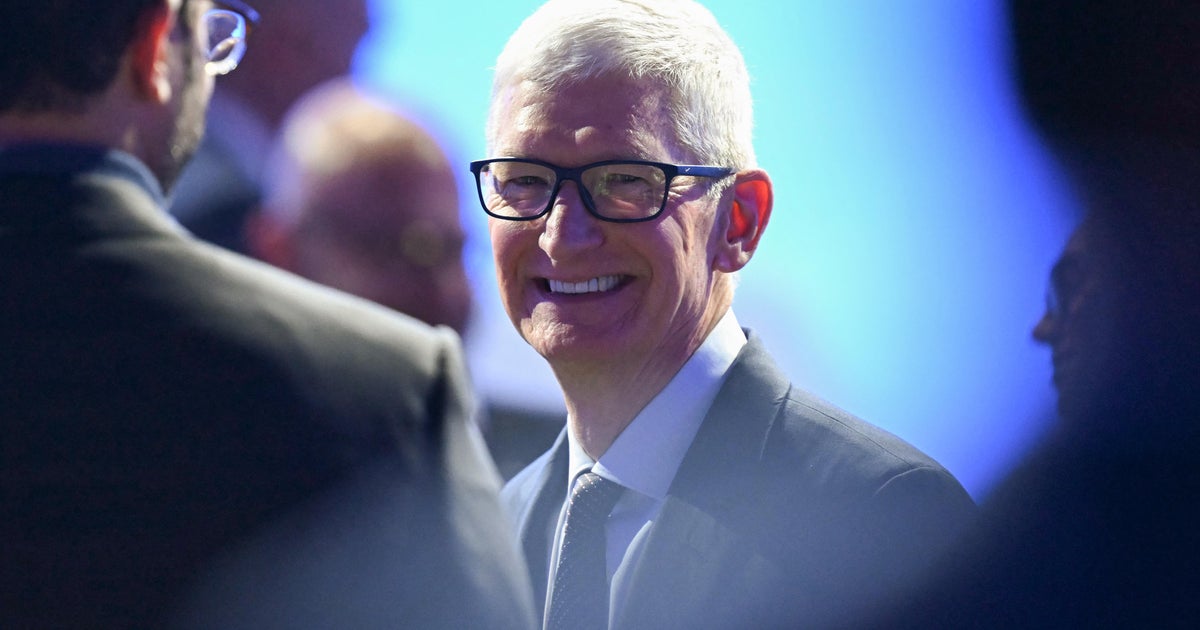Are "smart hotels" a danger to privacy?
For decades, hotels have worked hard to offer travelers a home away from home. But aside from now-standard perks like cable TV, in-room Jacuzzis and minibars, few things have changed … until now. Rooms in some major hotel chains are getting a digital makeover.
At Marriott Headquarters in Bethesda, Maryland, researchers are working to replace hotel rooms with "smart rooms" that spring to life when voice commands operate the blinds, lights, and the TV, reports CBS News travel editor Peter Greenberg.
A wired room can be personalized to the customer's tastes, said Adam Malamut, who is in charge of customer experience. "If I like an icebox of a room to go to sleep, and I'm not in the room, the room knows through its sensors that there's no one here," he said.
Guests can go onto their personal profiles and add workout schedules, request weather updates, and even upload personal photos to have on display before they walk in the door. At least one Marriott shower now uses "smart-glass technology," so guests can jot down their thoughts on a fogged-up mirror -- and have them emailed to their smartphones.
"The idea is that it's personalized to the customer," said Malamut.
All that data, including your location and voice commands, can be saved for future use.
"This will grow with interaction and collection of more data," said Malamut. "All these types of systems are built with an intelligent engine that actually learns through customer interactions and gets that much better."
"So, if you're a guest and you're prone to talking to yourself in the room, you can get into some serious trouble?" asked Greenberg.
"Theoretically," replied Malamut. "But you have to ask the room with specific commands for this to work."
Eric Cole, a cyber security expert and former security advisor to President Obama, said that while this technology may improve customer service, it also represents a huge violation of personal privacy.
"When you have these smart hotels, they have a token on your phone where they know where you go, they know what type of coffee you order, they know what you order in the restaurant," he said.
Like Marriott, Hilton is also in on technical revolution. Both chains now offer perks like electronic keys, so guests can open hotel room doors using their smartphones.
But it's a convenience, Cole says, that needs to be used with caution. He says the Bluetooth signal sent from your smartphone might be unencrypted, and could be hacked from up to 15 feet away.
"Somebody could go in and intercept your key," Cole said. "They could also track your locations, and if somebody can steal that digital signature, they can run up charges that you would have to pay for."
When asked if the technology can be hacked, Alexandra Jaritz, a senior vice president at Hilton, whose new rooms can be controlled with a smartphone app, replied, "We have worked and continue to work to make sure that we're, you know, making sure that doesn't happen."
And while the back-end staff might be working to make sure your hotel stay is as pleasant as possible, experts say hotel guests need to be careful about how much personal information they share.
"What most people don't realize is with these smart hotels you are opting into everything," Cole said. "By default, they are tracking your location, they can control every aspect of your room. Think about what you need, and opt out of everything else."
The option of using a regular room key remains available, as does opting out of any of the smartroom features.
Both Hilton and Marriott say they have security measures in place to protect personal information, adding that the safety of their guests remains their top priority.




